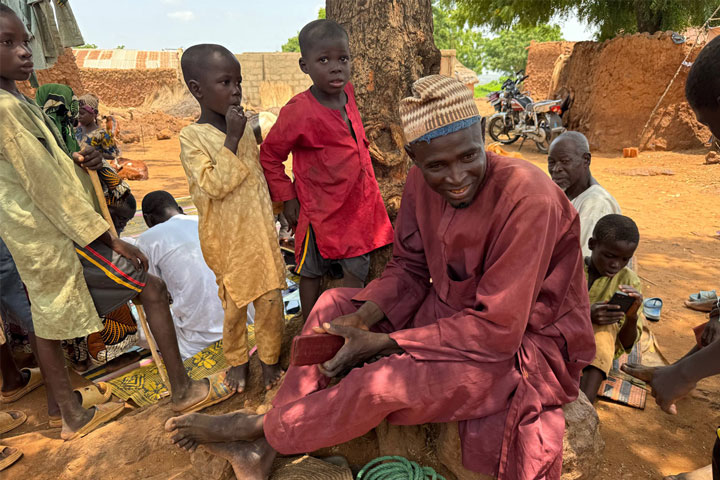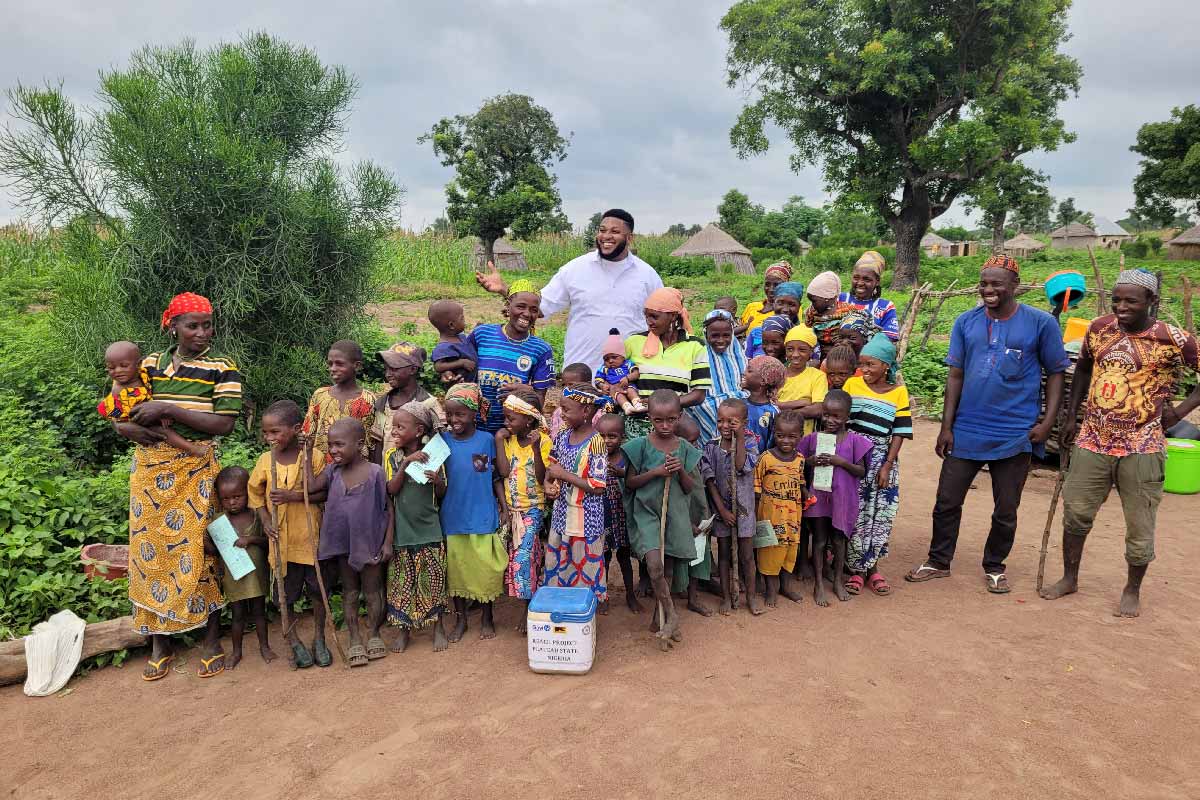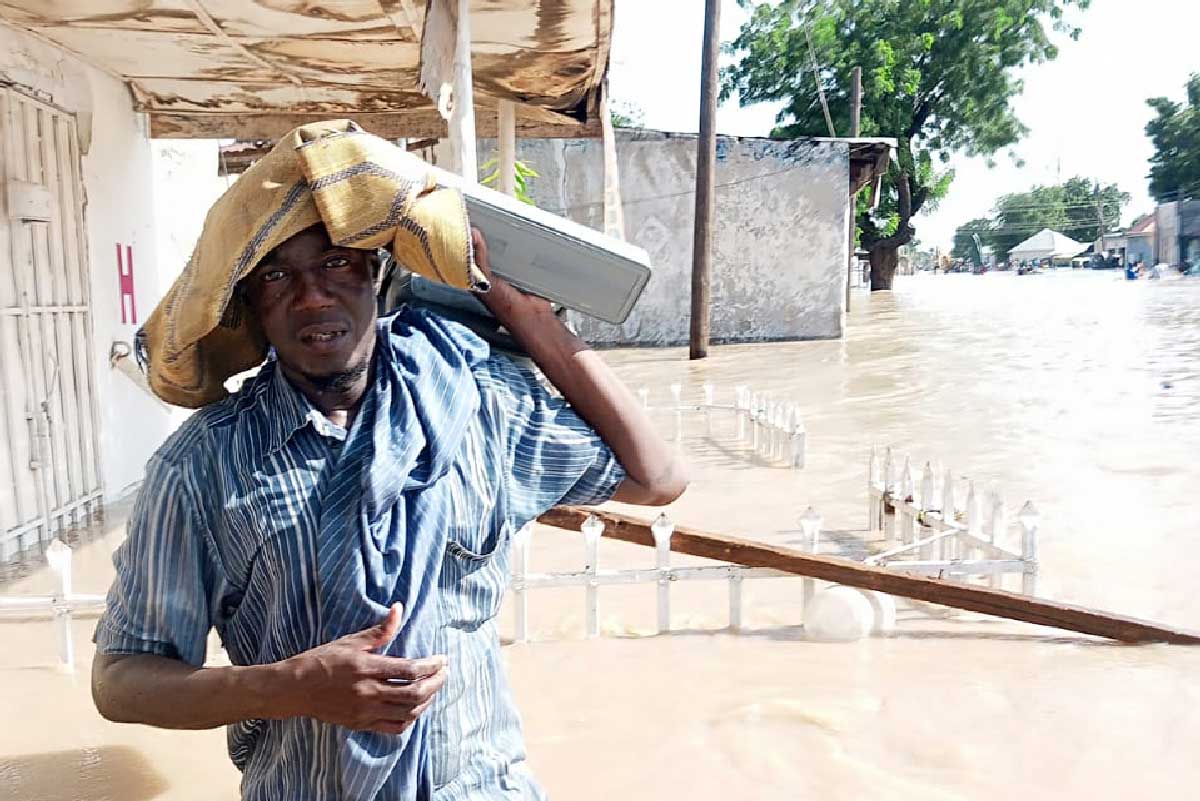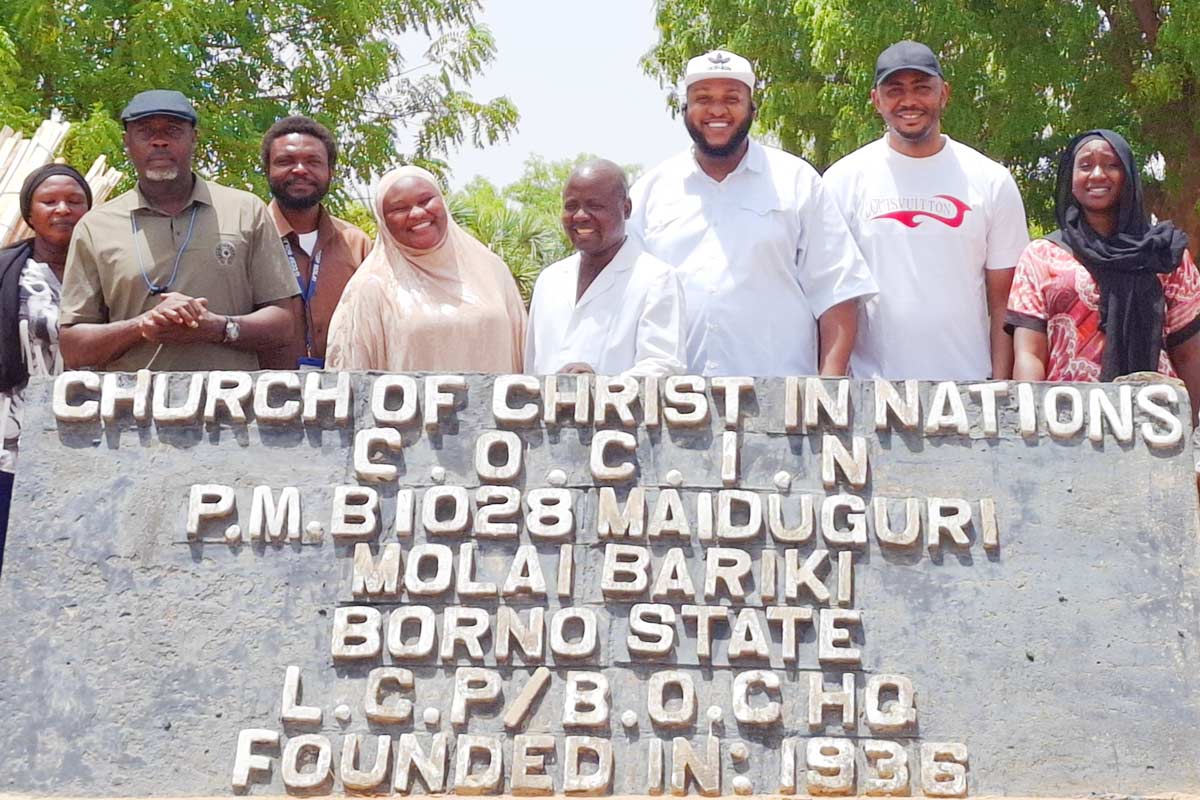In Borno, the climate crisis is an immunisation crisis
For communities cut off from government immunisation services by conflict and climate trouble, boat-borne vaccinators are a lifeline.
- 22 September 2025
- 5 min read
- by Christian Health Association of Nigeria (CHAN)
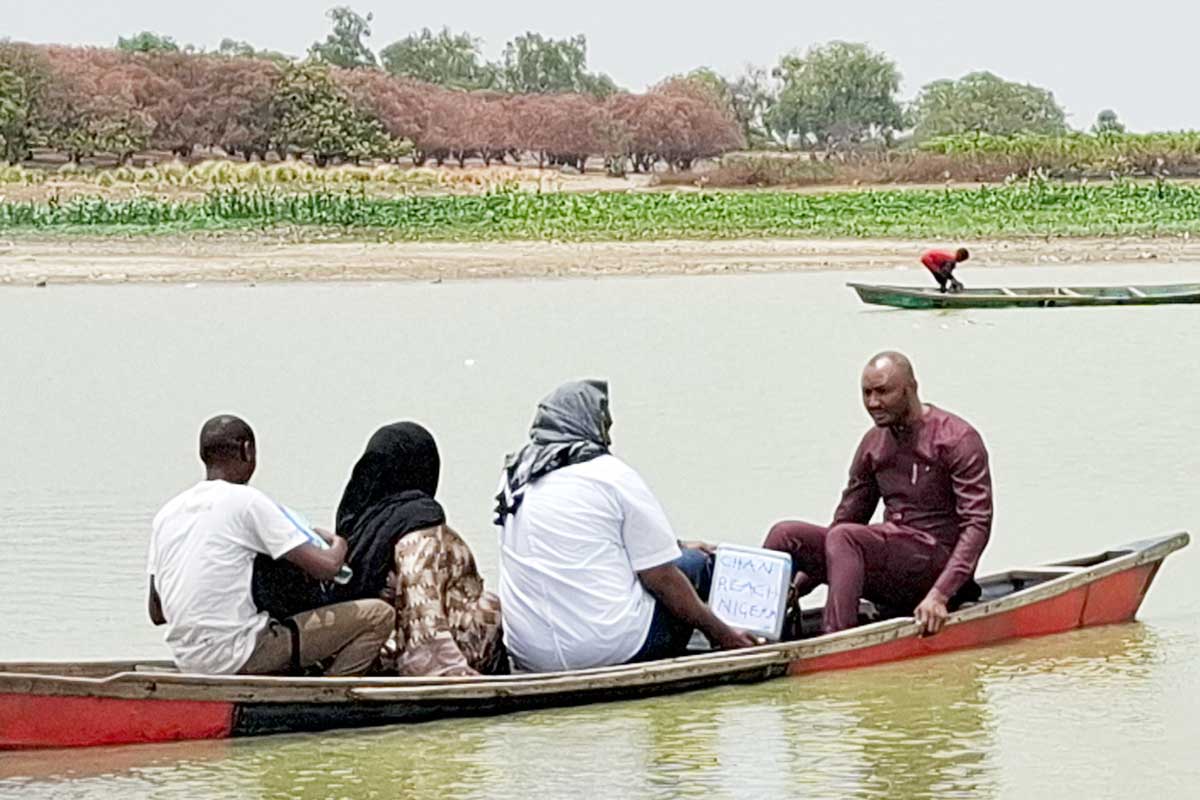
The only way to reach several of the communities along the Laujeri axis of Alau, in Jere LGA of Borno State in Nigeria, is by canoe.
At least eight such communities have no proper roads leading in. When the water levels rise at the peak of the rains, paths are submerged, cutting off the community from the rest of Laujeri. Yet, in the dry season, the community bakes under an angry sun. The climate crisis is far from abstract in this remote humanitarian corner of north-eastern Nigeria.
Despite significant personal risk, the vaccination team dispatched by the Christian Health Association of Nigeria (CHAN) remains committed to delivering life-saving vaccines to children in these remote riverine settlements. That’s vital, because they have been long cut off from government immunisation efforts due to insecurity and intensifying climate-linked challenges.
This effort is part of the Reaching Every Child in Humanitarian Settings (REACH) project, implemented in Nigeria by the Christian Health Association of Nigeria (CHAN) as part of a multi-country consortium led by the International Rescue Committee (IRC) and funded by Gavi, the Vaccine Alliance. The project is committed to ensuring that children in humanitarian settings receive their full routine immunisations, no matter how hard they are to reach.
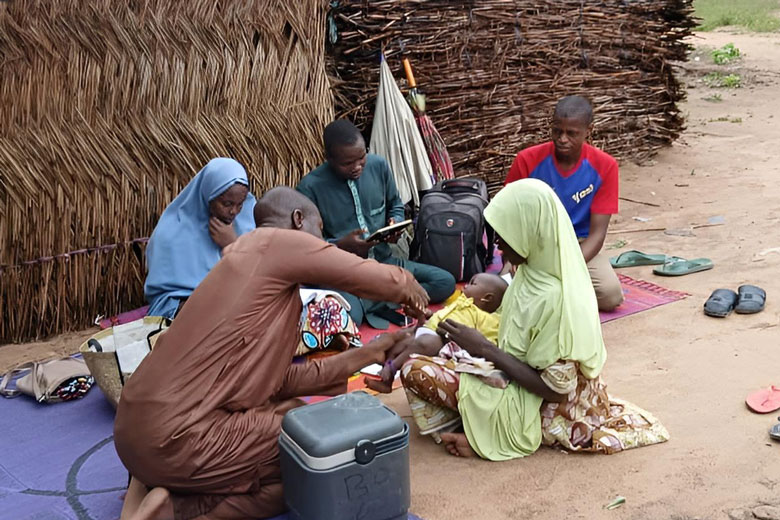
In places like Ngururi and Laujeri, where floodwaters rise some of the year, and the earth burns under extreme temperatures at other times, this commitment means overcoming not only insecurity, but the mounting pressures of climate change.
21,000 doses – a signal of community trust
It is not just the water that makes getting to Laujeri hard. Insecurity threatens for much of the way there from Maiduguri, Borno’s capital. There are multiple military checkpoints and shadows of violence; reports indicate that at various times, over 70,000 Nigerian troops have been deployed to Borno state alone to combat Organised Armed Groups (OAGs).
But CHAN’s vaccination team hasn’t missed a single month’s outreach since access was negotiated in mid-2024, with the exception of an administratively-determined programme pause that lasted from September 2024 to February 2025.
With careful planning, strong ties to the community, and the guidance of local experts, the team presses forward. Their dedication shows in the numbers. In April 2025 alone, over 21,000 doses of DPT1 (the first dose of the basic diphtheria, pertussis and tetanus-containing vaccine, conventionally used as a stand-in for vaccination coverage in general) have been administered in communities within Jere LGA. It is more than a statistic. It is a signal of trust, of access and of unwavering commitment to children who would otherwise be forgotten.
The climate crisis is already here
“There is no other way in,” said a CHAN vaccinator, recounting the boat trip to Ngururi.
Time and again, the team crossed the river without life jackets1, accompanied by experienced local boatmen who acted as informal lifeguards. Every movement was calculated. They monitored the weather, checked the canoe and stayed in contact.
And then came the heat. In April 2025, the temperature climbed to nearly 50°C. For a riverside community that survives by smoking fish, it was unbearable. A fire sparked and swept through the village. Homes were lost. Livelihoods turned to ash. Families fled. But even then, the vaccination team returned the following month.
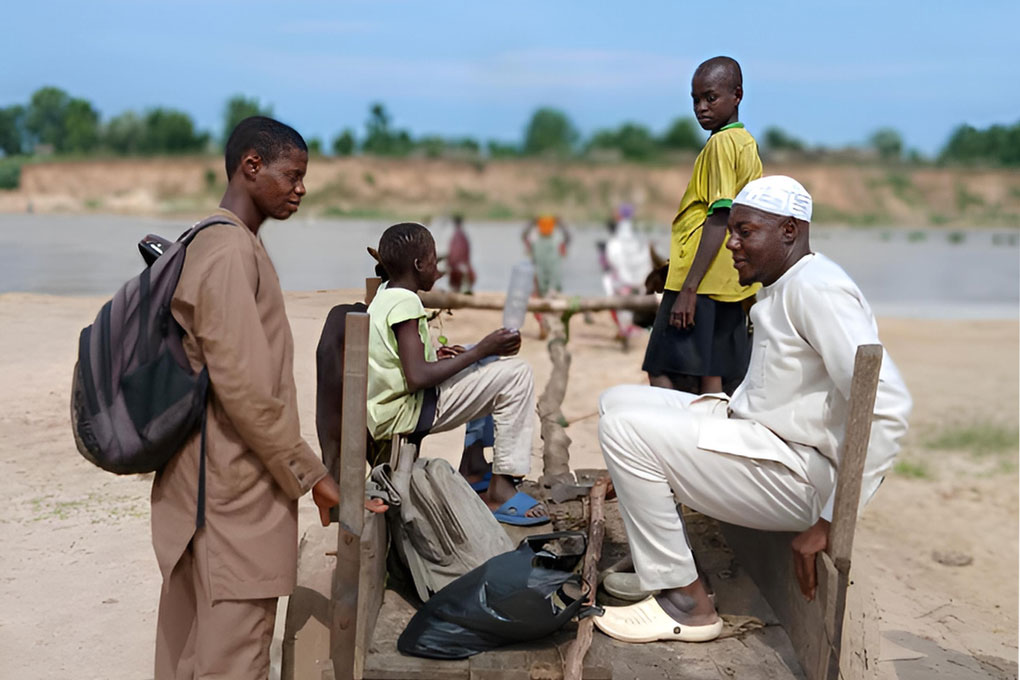
What happened in Ngururi is not an isolated event. That same month, the Nigerian Meteorological Agency (NiMet) issued a warning about dangerous heat levels across Borno and 17 other states. The health risks were immediate, and highest for the elderly and children. Vaccines, too, were at risk: the antigens in Nigeria’s routine immunisation schedule need to be kept at a cool 2–8°C to remain potent.
Next came the rain. NiMet predicted heavy downpours and flash floods in May and June, adding more pressure on already-strained communities. The message was clear. The climate crisis is already here, disrupting the way health services are delivered.
But through fire, water and uncertainty, CHAN’s health team – carrying bottled doses of protection – showed up. For the people of Laujeri, the team has become more than just a group of health workers. They are a lifeline.
Have you read?
“Only CHAN comes here”
Kolomi Mamman, the community’s Bulama (village chief), knows this well. “Only CHAN comes here; no other group brings vaccines. The team is committed. They came just yesterday for the May vaccinations,” he says, his voice firm with conviction.
Kolomi’s community has lost nearly all its farmland to the floods, and the soil is exhausted. Even before the fires and water, access to healthcare was a challenge. Armed groups had already burned down the Alau primary health centre.
Now, with alternating assaults from fire and flood, the need for routine immunisation is only more urgent. And it is not just the workers who make sure that the children are protected, it is the mothers, too.
The community women’s leader gets to work as soon as the CHAN team notifies the community of the vaccination day. She spreads the word, gathers mothers and ensures no child is left behind.
“Once CHAN team calls, I start mobilising my people; we don’t waste time. We get our children ready,” she says.
How is Gavi supporting CHAN?
Gavi’s humanitarian partnerships programme, also known as ZIP, funds partner organisations with specific expertise in navigating humanitarian crisis. The aim? To deliver all scheduled vaccine doses to children from birth to age five in communities where conflict impedes the access of government-provided health services.
CHAN, operating in troubled parts of northern Nigeria, is one such specialist organisation, and is operating as part of the IRC-led, ZIP-funded, REACH consortium.
As of July 2025, ZIP had provided more than 2.1 million children growing up in crisis zones with their very first vaccine, and 1 million children with their last recommended dose, leaving them fully immunised.
1 REACH Nigeria recently procured and distributed life jackets to protect the canoe-borne field teams
